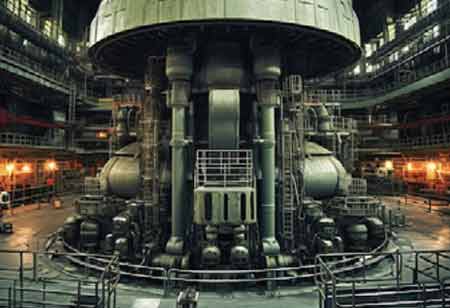CLOSE
Specials
I agree We use cookies on this website to enhance your user experience. By clicking any link on this page you are giving your consent for us to set cookies. More info
Be first to read the latest tech news, Industry Leader's Insights, and CIO interviews of medium and large enterprises exclusively from Energy Tech Review
Thank you for Subscribing
What is the Role of Asset Management in the Solar Energy Industry?
The solar energy industry has witnessed significant expansion in recent years, driven by increased environmental consciousness, technological innovations, and favorable government regulations.

By
Energy Tech Review | Monday, August 18, 2025
Stay ahead of the industry with exclusive feature stories on the top companies, expert insights and the latest news delivered straight to your inbox. Subscribe today.
Fremont, CA: The solar energy sector has experienced remarkable growth in recent years, propelled by heightened environmental awareness, technological advancements, and supportive government policies. As the infrastructure for solar energy continues to develop, efficient asset management is essential to guarantee solar assets' optimal performance, reliability, and durability.
Energy Asset Management
Energy asset management refers to the systematic supervision, evaluation, and upkeep of energy-generating assets to enhance their efficiency, dependability, and longevity. Within the solar energy sector, asset management includes various tasks designed to improve the functionality of solar photovoltaic (PV) systems, inverters, trackers, and related components.
Why is an Asset Management System Necessary for the Solar Energy Industry?
The solar energy sector necessitates an asset management system for various essential reasons for maintaining solar energy assets' reliability, efficiency, and durability. Below, we will briefly examine some of these reasons.
Maximizing Performance:
Solar energy systems represent significant capital investments aimed at producing electricity effectively over a prolonged duration. An asset management system allows operators to oversee and enhance the performance of solar panels, inverters, and other components, ensuring they function optimally. Asset managers can take corrective actions to improve energy output and increase revenue generation by detecting underperforming assets or inefficiencies within the system.
Minimizing Downtime:
Interruptions in solar energy systems can lead to considerable financial losses and hinder achieving energy production goals. An effective asset management system enables proactive maintenance scheduling, employs predictive analytics, and provides real-time monitoring to identify potential problems before they develop into expensive failures. By addressing maintenance requirements promptly and strategically, asset managers can reduce system downtime, enhance energy availability, and maintain service level agreements with stakeholders.
Compliance and Reporting:
The solar energy sector functions under a regulatory framework that oversees safety, environmental effects, and standards for energy production. An asset management system ensures adherence to these regulatory requirements by keeping precise records of maintenance activities, equipment evaluations, and performance metrics. Such documentation is vital for proving compliance with regulations, addressing audits, and reporting environmental performance indicators.
Enhancing Asset Lifespan:
The solar energy sector functions under a regulatory framework that oversees safety, environmental effects, and standards for energy production. An asset management system ensures adherence to these regulatory requirements by keeping precise records of maintenance activities, equipment inspections, and performance metrics. Such documentation is vital for proving compliance with regulations, addressing audits, and reporting environmental performance indicators.
These are some reasons asset management is significant for the solar energy industry. Efficient management of assets is crucial for optimizing solar energy assets' performance, reliability, and lifespan. Adopting a comprehensive asset management system enables solar energy firms to improve maintenance procedures, reduce periods of inactivity, and boost overall operational effectiveness.

Copyright © 2025 Energy Tech Review. All rights reserved






